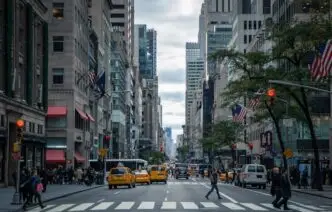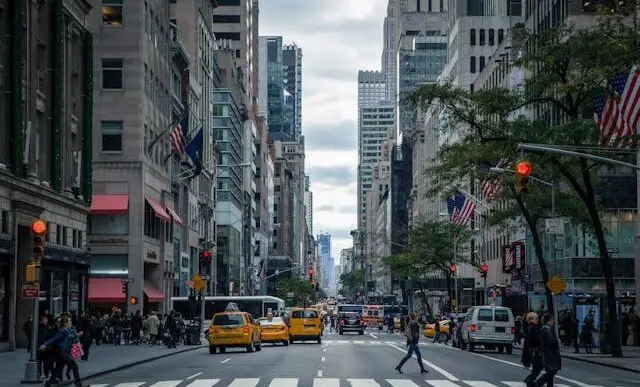Manhattan District Attorney Alvin Bragg’s policies have come under scrutiny with critics asserting that their leniency has enabled repeat offenders to wreak havoc on New York City streets. High-profile cases include criminals with over 134 arrests walking free due to bail reform, thus amplifying concerns about an escalating street crime wave.
These policies, aimed at reducing incarceration rates and reimagining the criminal justice system, have instead led to an increase in street crime, according to law enforcement officials and crime analysts. They argue that such leniency sends the wrong message to criminals, leading to a cycle of reoffending that puts the public at risk.
The Impact of Bail Reform
The bail reform policy implemented by Bragg has significantly reduced the number of individuals being held pretrial. However, critics argue that it has also inadvertently paved the way for an increase in repeat offenders and street crime. Individuals with extensive criminal histories are being released back onto the streets, often to commit the same offenses for which they were originally arrested, leading to a revolving door of crime.
High-profile cases such as those involving offenders with over 134 arrests walking free have fueled concerns about the efficacy of these policies. Law enforcement officials argue that such repeat offenders, rather than being deterred by the criminal justice system, are instead emboldened by the perceived lack of consequences.
A Spike in Street Crime
As a result of these policies, New York City has seen a significant increase in street crime rates. According to data from the New York Police Department, there has been a notable upsurge in crimes such as robbery, assault, and burglary. Critics argue that these trends can be directly attributed to the lenient policies implemented by the Manhattan DA’s office.
Law enforcement officials assert that these policies have created a sense of lawlessness in the city, undermining public safety and eroding public trust in the criminal justice system. They argue that the focus should instead be on holding offenders accountable for their actions, rather than releasing them back into the community with little to no consequences.
Public Reaction and Policy Reevaluation
The public reaction to the rise in crime rates and the leniency of Bragg’s policies has been largely negative. Many New Yorkers feel that their safety is being compromised and are calling for a reevaluation of these policies. There have been calls for the Manhattan DA to take a tougher stance on crime, particularly when it comes to repeat offenders.
Bragg has defended his policies, stating that they are part of a broader strategy aimed at reducing incarceration rates and addressing systemic issues within the criminal justice system. However, with crime rates on the rise and public dissatisfaction growing, it remains to be seen whether these policies will be revised or if the city will continue on its current trajectory.
As the debate around these policies continues, one thing is clear: the policies of the Manhattan DA’s office have significant implications for street crime in New York City. It remains to be seen whether a balance can be struck between addressing systemic issues in the criminal justice system and ensuring public safety.














